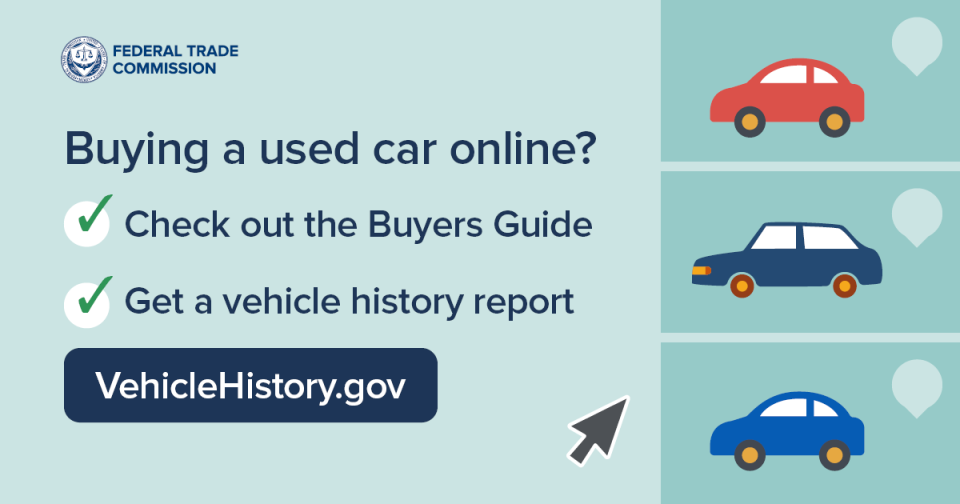Buying a used car instead of a new one might save you some money. But finding, researching, and negotiating to get a used car can be challenging. Online sellers might claim to make buying a used car cheaper and easier, but some sellers use tactics that might end up costing you time and money.
The FTC says online seller Vroom.com broke the law when it failed to give people required Buyers Guides, misrepresented vehicle inspections, didn’t post copies of its warranties, and failed to give customers the option to cancel and get a refund when the company didn’t deliver many cars on time.
The law says dealers must put a Buyers Guide on every used car. The Buyers Guide tells you if the car has a warranty or is being sold “as is.” And, for online sales, dealers must give people the option to cancel their order and get a prompt refund when their car doesn’t ship on time. If you’re shopping for a used car, here are some steps to take:
- Get a vehicle history report. Start at vehiclehistory.gov to get free information about a vehicle’s title, the most recent odometer reading, and condition. For a fee, you’ll get other reports with additional information, like accident and repair history.
- Get help from an independent mechanic. This is a good idea even if the car has been “certified” or inspected by the dealer. You’ll have to pay the inspection fee, but it can help you avoid buying a car with major problems.
Learn more about buying and owning a car at ftc.gov/usedcars. You have the right to know the facts about any car you buy. If the dealer isn’t honest, let the FTC know at ReportFraud.ftc.gov and tell your state attorney general.






I am interested
I am interested